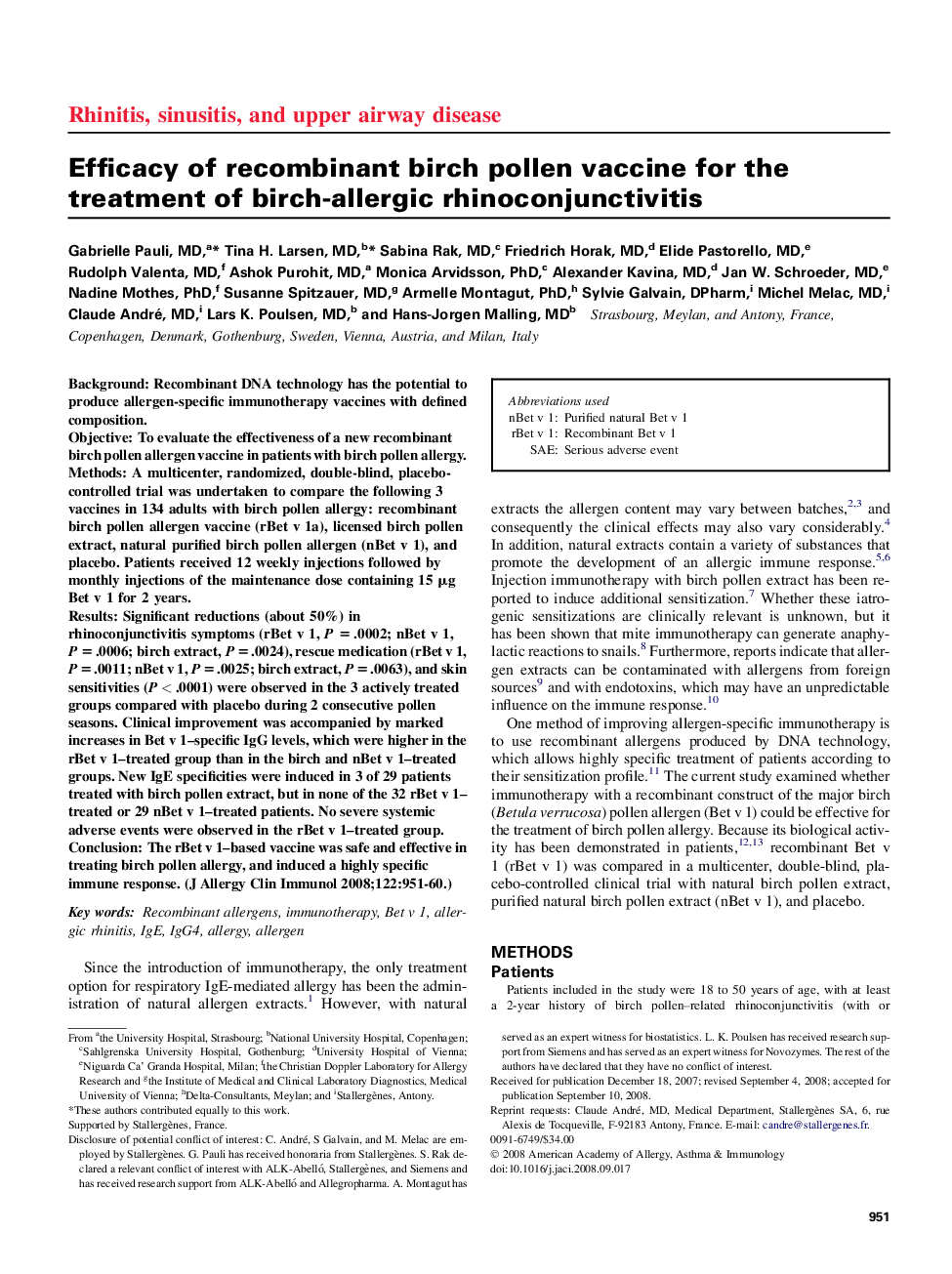| Article ID | Journal | Published Year | Pages | File Type |
|---|---|---|---|---|
| 3202093 | Journal of Allergy and Clinical Immunology | 2008 | 10 Pages |
BackgroundRecombinant DNA technology has the potential to produce allergen-specific immunotherapy vaccines with defined composition.ObjectiveTo evaluate the effectiveness of a new recombinant birch pollen allergen vaccine in patients with birch pollen allergy.MethodsA multicenter, randomized, double-blind, placebo-controlled trial was undertaken to compare the following 3 vaccines in 134 adults with birch pollen allergy: recombinant birch pollen allergen vaccine (rBet v 1a), licensed birch pollen extract, natural purified birch pollen allergen (nBet v 1), and placebo. Patients received 12 weekly injections followed by monthly injections of the maintenance dose containing 15 μg Bet v 1 for 2 years.ResultsSignificant reductions (about 50%) in rhinoconjunctivitis symptoms (rBet v 1, P = .0002; nBet v 1, P = .0006; birch extract, P = .0024), rescue medication (rBet v 1, P = .0011; nBet v 1, P = .0025; birch extract, P = .0063), and skin sensitivities (P < .0001) were observed in the 3 actively treated groups compared with placebo during 2 consecutive pollen seasons. Clinical improvement was accompanied by marked increases in Bet v 1–specific IgG levels, which were higher in the rBet v 1–treated group than in the birch and nBet v 1–treated groups. New IgE specificities were induced in 3 of 29 patients treated with birch pollen extract, but in none of the 32 rBet v 1–treated or 29 nBet v 1–treated patients. No severe systemic adverse events were observed in the rBet v 1–treated group.ConclusionThe rBet v 1–based vaccine was safe and effective in treating birch pollen allergy, and induced a highly specific immune response.
